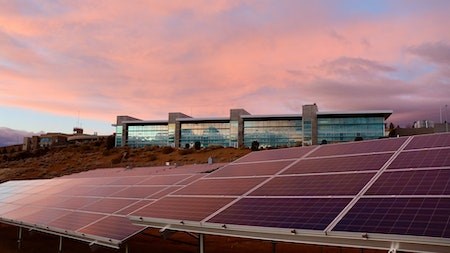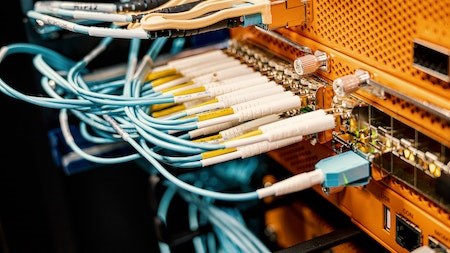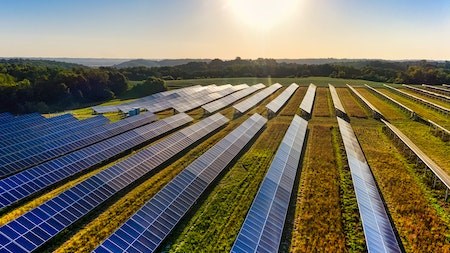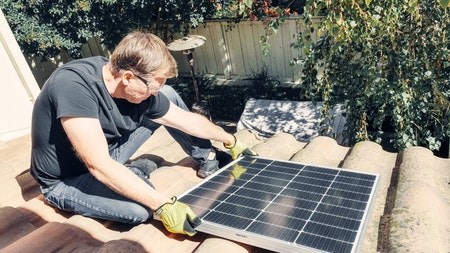Have you stopped exploring the potential of alternative power sources to cope with load shedding because of the financial implications? Sure, solar sounds amazing, but it comes at a cost. Obviously, a generator is an option, but with fuel prices fluctuating; this may not be practical, let alone concerns around emissions. Perhaps you’ve looked at an uninterruptible power supply (UPS) as another option, but what if you don’t have the budget even for this system?
The solution is a Portable Power Station (PPS). Like a UPS, a PPS stores energy in batteries, which is kept in reserve until needed. However, there is a significant difference between the two devices … and that is manoeuvrability and size.
UPS vs PPS
A UPS is typically rather heavy because not only does it comprise the recharging battery/ies but also a rectifier which converts mains power (alternating current, also known as AC) to Direct Current (DC), the system by which batteries are charged. There is also an inverter that converts DC power back to AC because this is the system that the South African electricity supply (when it is working) uses.
A UPS is designed to be an almost, if not instant backup energy source when a load shedding phase kicks in. The devices plugged into the UPS remain connected to either the grid or the UPS, meaning that there is a constant flow of power to those devices. Depending on the number of batteries connected to the system, and the number of devices plugged in, a UPS can provide enough energy for days or hours. One of the greatest advantages of a UPS is that it does offer some protection for sensitive equipment, like computers, that can be vulnerable to power surges during the on-off power cycle.
A PPS is somewhat like a UPS; in fact, you could say it’s a mini version, but significantly you can take it with you wherever you go. PPSs have been in use for decades by campers, who need to charge their devices when they are away from home and on construction sites where grid power is not yet available. They are now gaining popularity as an affordable home option to help cope with the frustrating Eskom load shedding regime.
A PPS isn’t going to power your entire house, neither is it going to provide you with instant cross-over power like a UPS can, but in most cases, a single charge can provide power for several hours or days, depending on the unit size and the amount of energy being drawn from it by the devices you are plugging in. For instance, it's an excellent solution for those working from home or studying scholars who cannot waste precious hours waiting for grid power to come online.
A PPS is somewhat like a power bank but on steroids. Models are varied and priced according to the amount of power output, but generically they take just two hours to charge fully. They can easily provide enough energy for a number of small electronics like mobile phones and laptops. You can also plug in a kettle, microwave, mini fridge etc., but in doing so, you need to look at the appliance's power capacity needs. Some suppliers indicate that PPSs can power even a large appliance, like a full-size refrigerator, for between four to 14 hours. For example, a top-end PPS of 1500Wh, has some 65 hours of DC and 22 hours of AC, while a smaller 992Wh, weighing around 10kg, will allow you to charge up to nine devices simultaneously.
A PPS can also be fully recharged using a solar panel - an optional extra - which is really helpful if you find yourself without power for days, and a plus is that you won't be recharging off the grid. It's a simple process: just plug the solar panel directly into the PPS, but you must also ensure that the panel is compatible with the PPS.
Looking at the lower cost range, you can buy a 296WH PPS providing 300W of power for around R5500. When shopping for one, consideration should be given to the type of battery; Lithium-ion batteries are lightweight, and they can be expensive, but the opposite applies to Lead-acid batteries.
Rechargeable batteries also have a life span, which is stated as X number of cycles to X percent capacity. One cycle is when the battery has been used to a total of 100%, regardless of the number of times you have recharged it. So, you might use 10% today, 70% tomorrow, and 20% the next day, which together equal one full cycle.
Assuming the battery has a cycle of 500, which has been used, the battery is not, however, at its end of life but may be at 80% capacity instead of the original 100%. This means that the powering of a device, for example, a freestanding light, will now only be on for 80 hours instead of the original 100 hours. This life cycle is important because a battery that gives 500 cycles at 80% is obviously a better choice than one that is 500 cycles to 50% capacity.
If you don't have the proper knowledge, it is also crucial to consult with a reputable seller to ensure you have a guarantee or warranty should something go wrong. When doing so, make a note of the wattages of the devices you need to power from a PPS to provide to the consultant. Also, make sure you buy a brand that has credibility in the market, as they tend to ensure their products are rugged, durable, and ideal for use in any environment.
Writer: Kerry Dimmer




